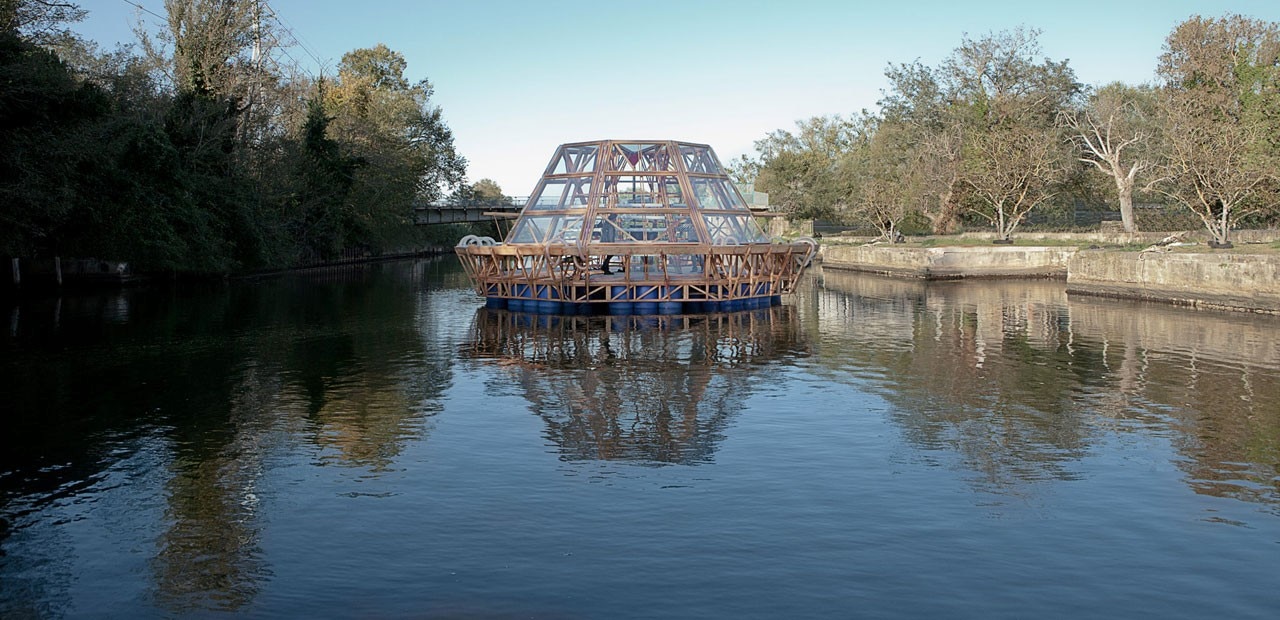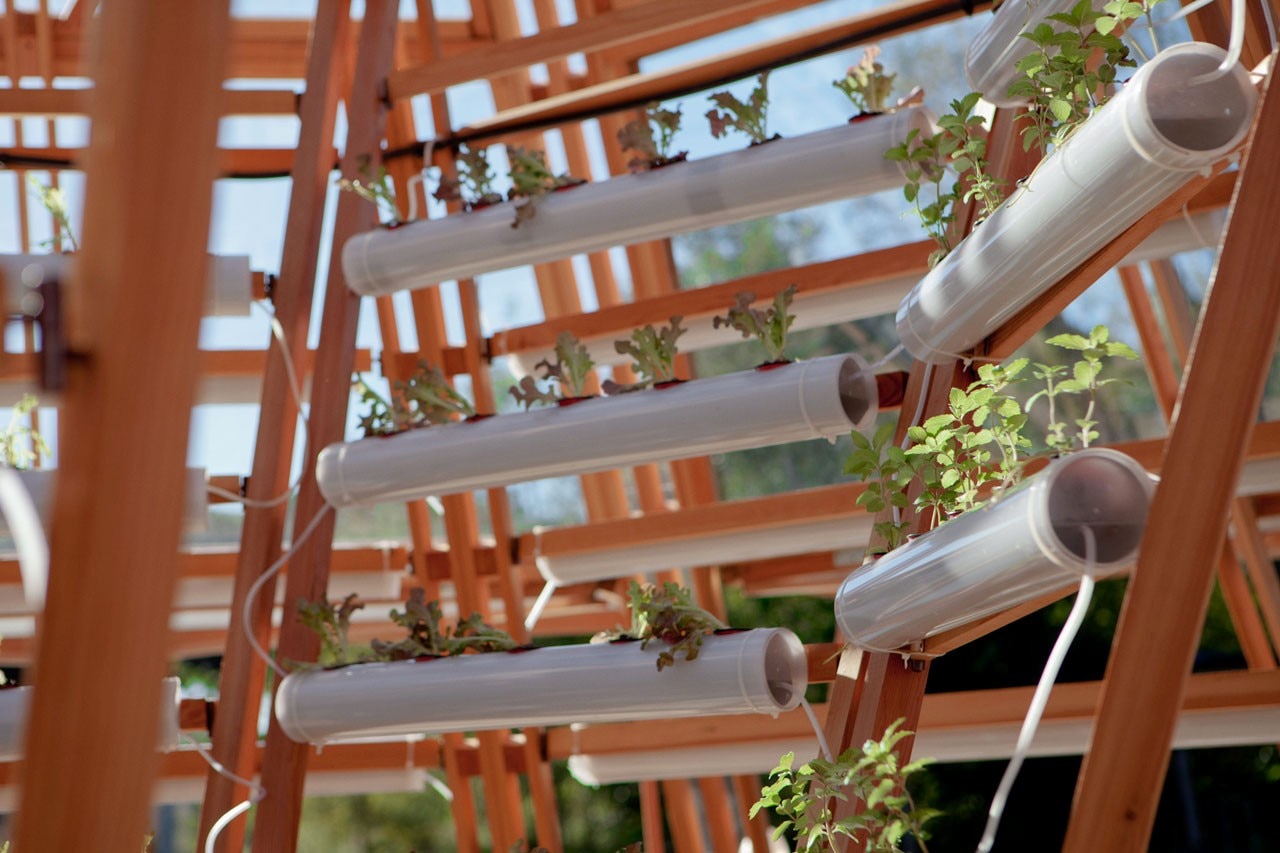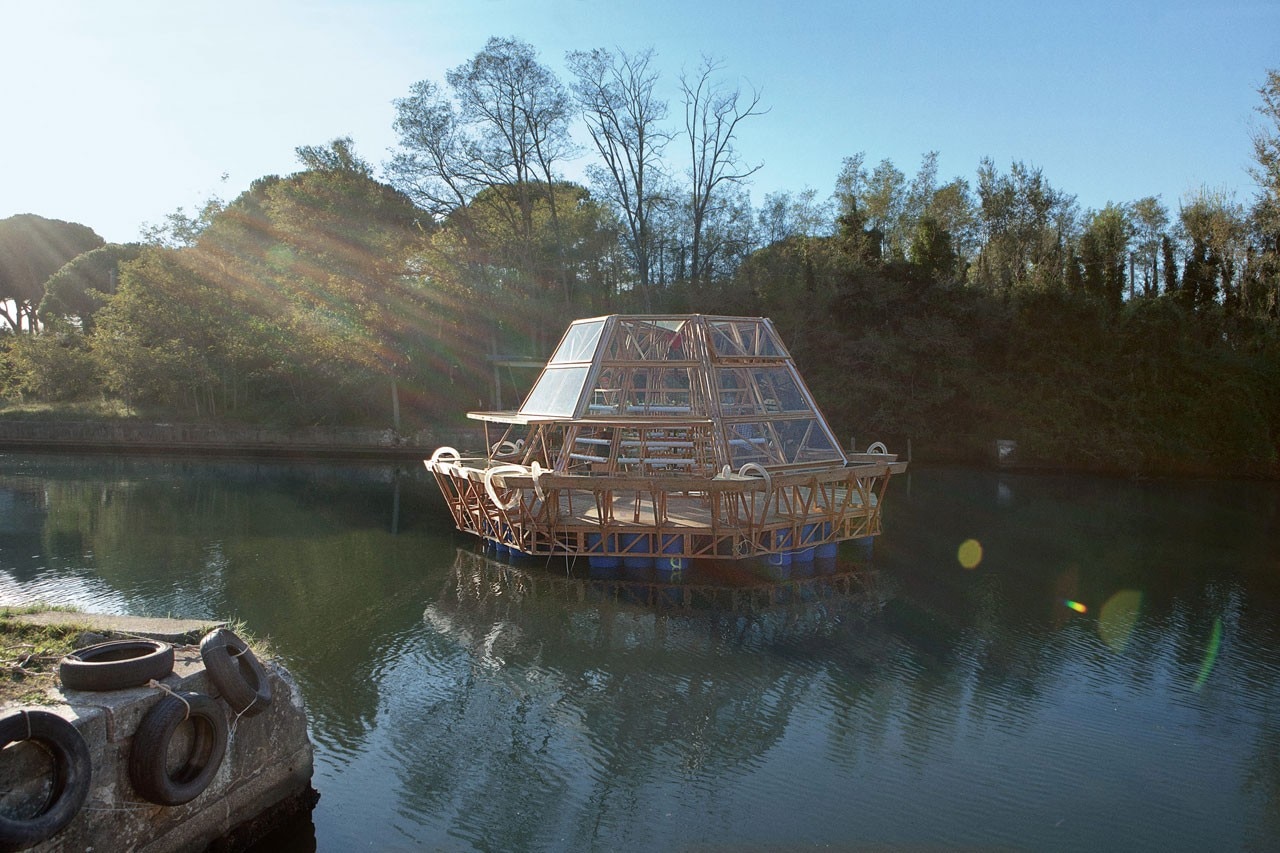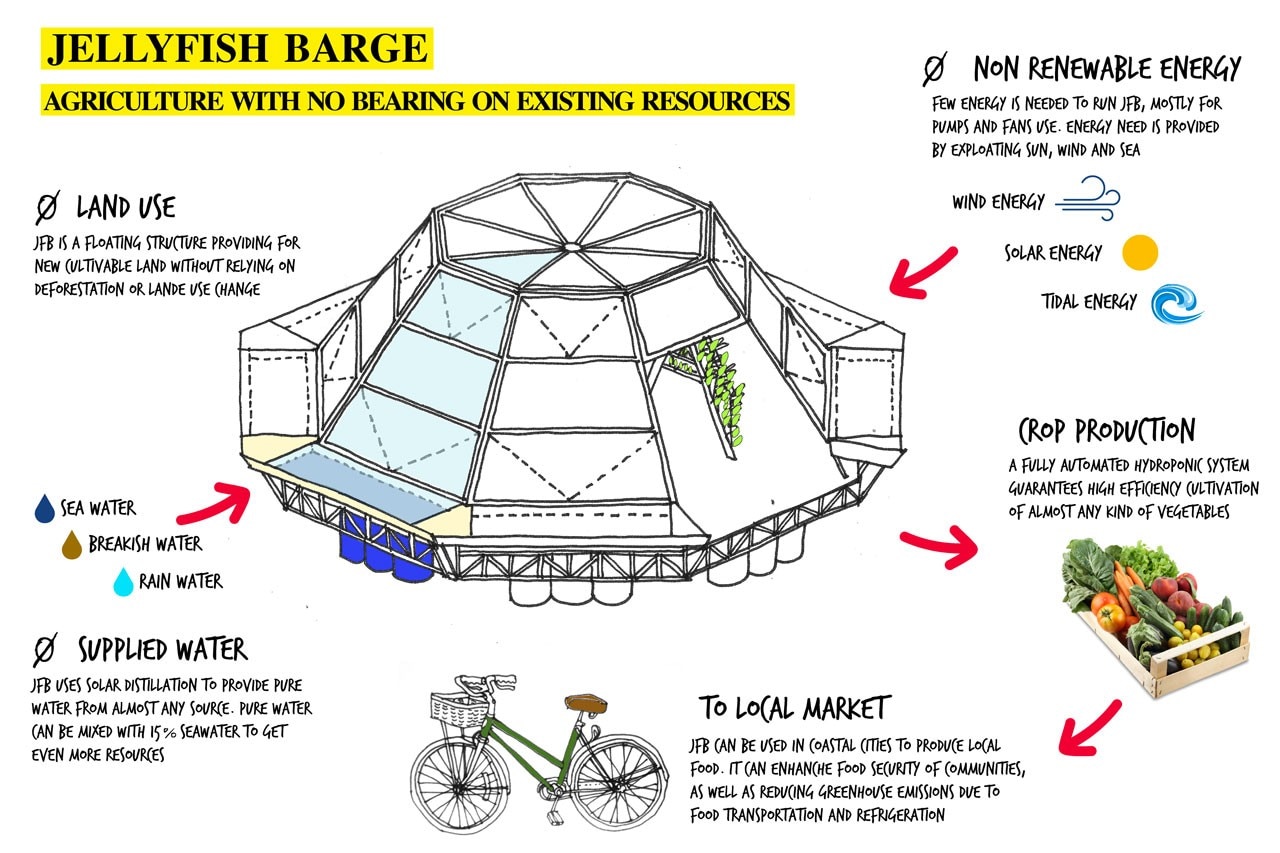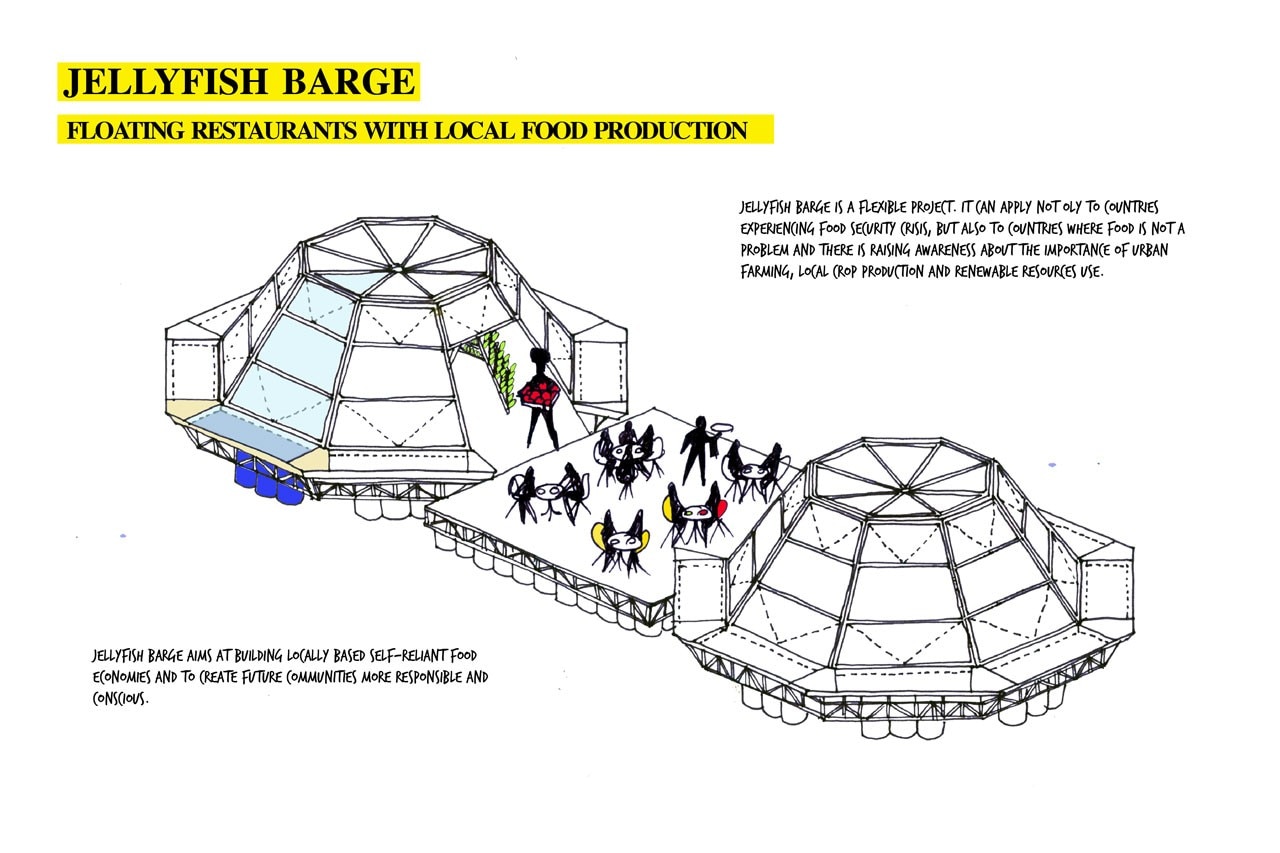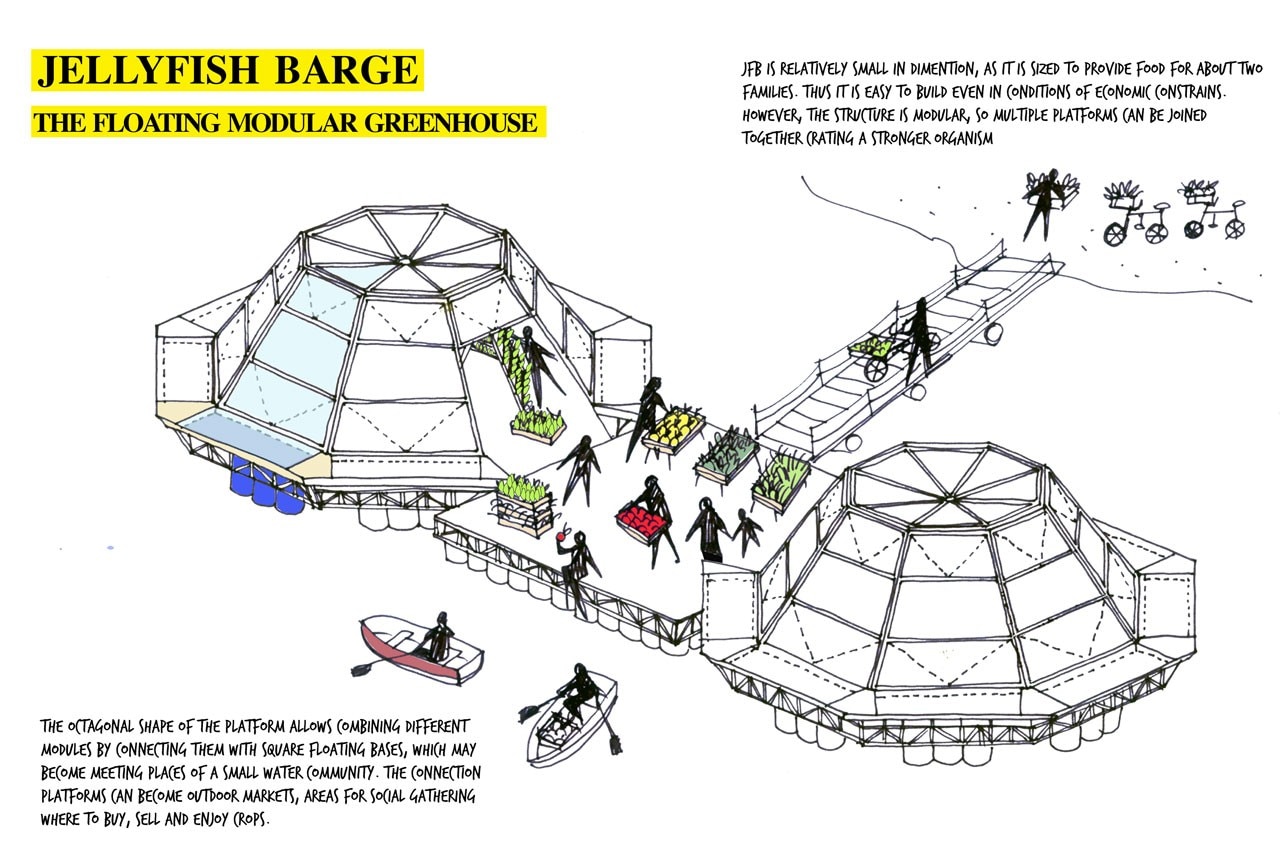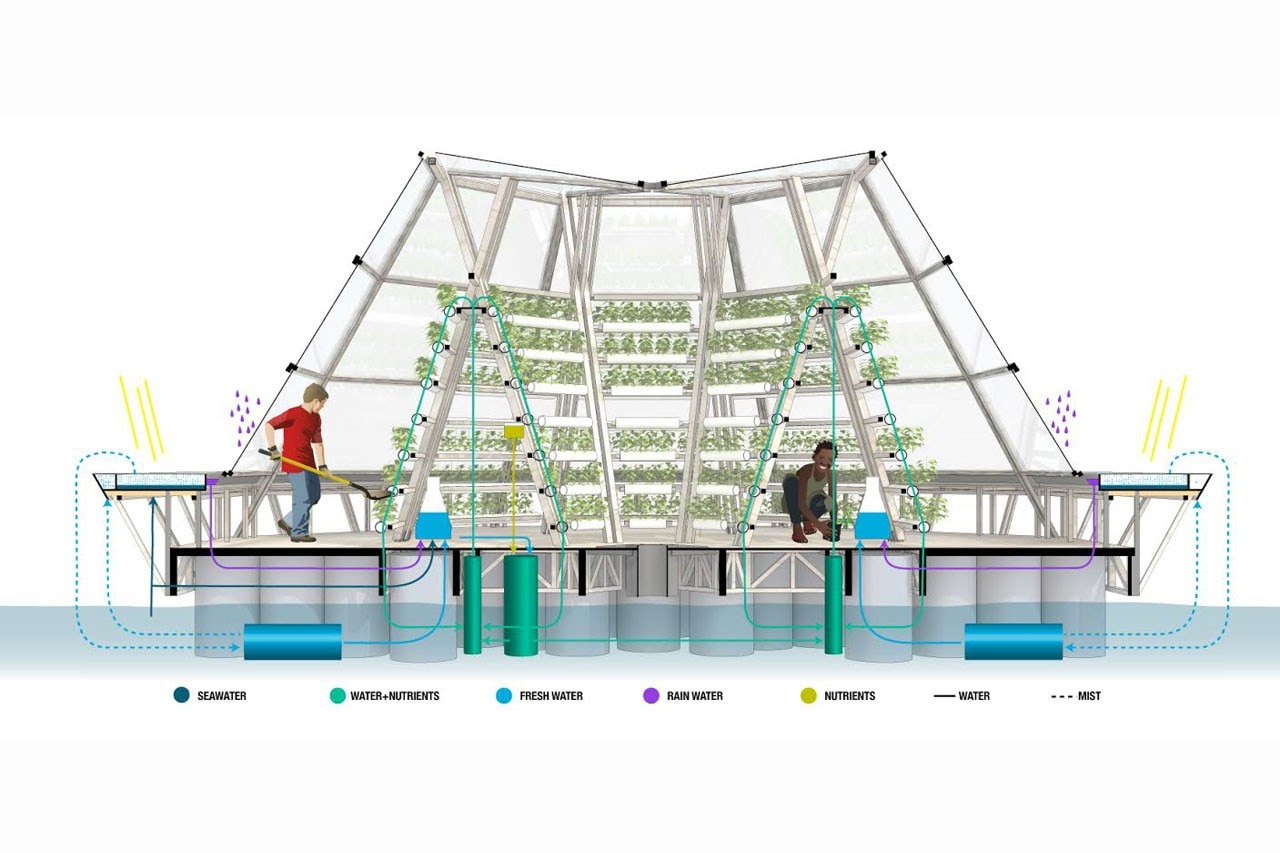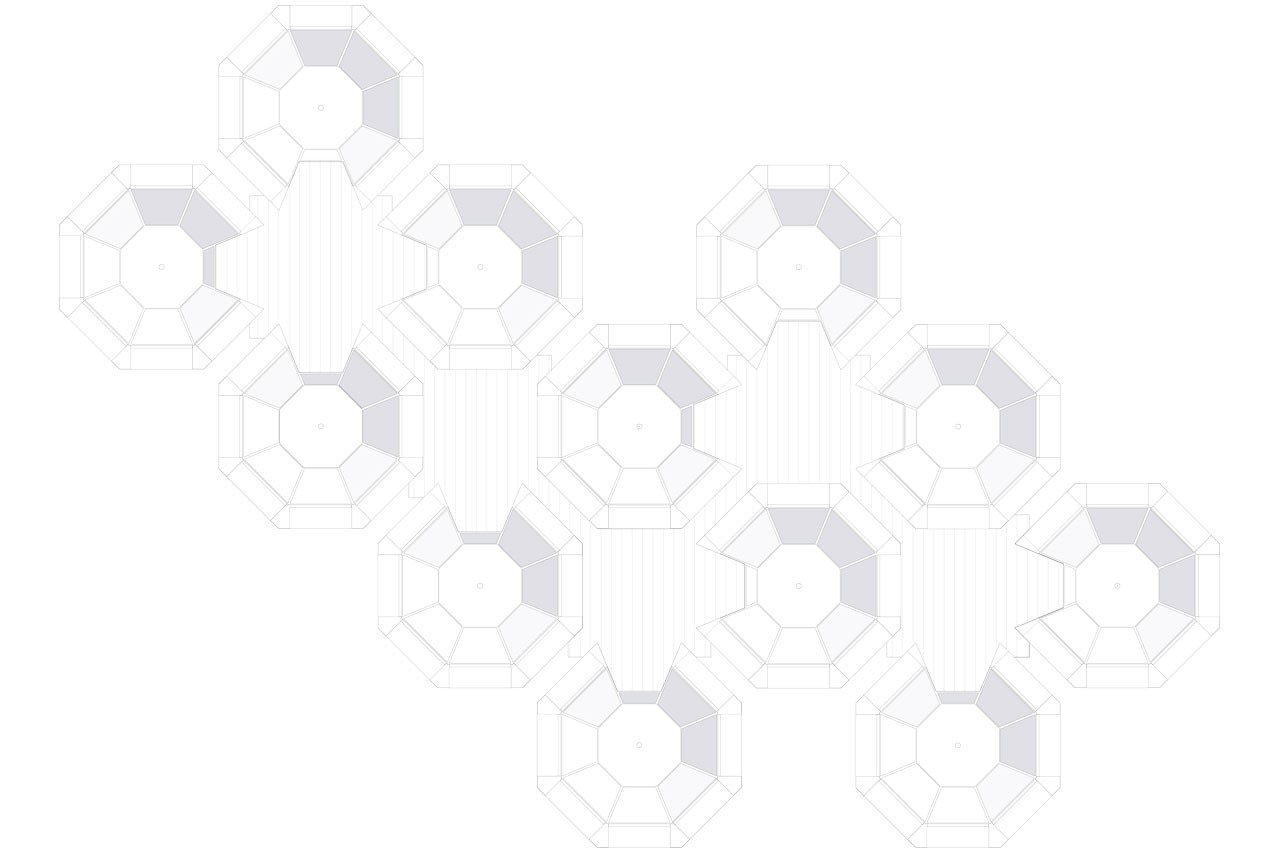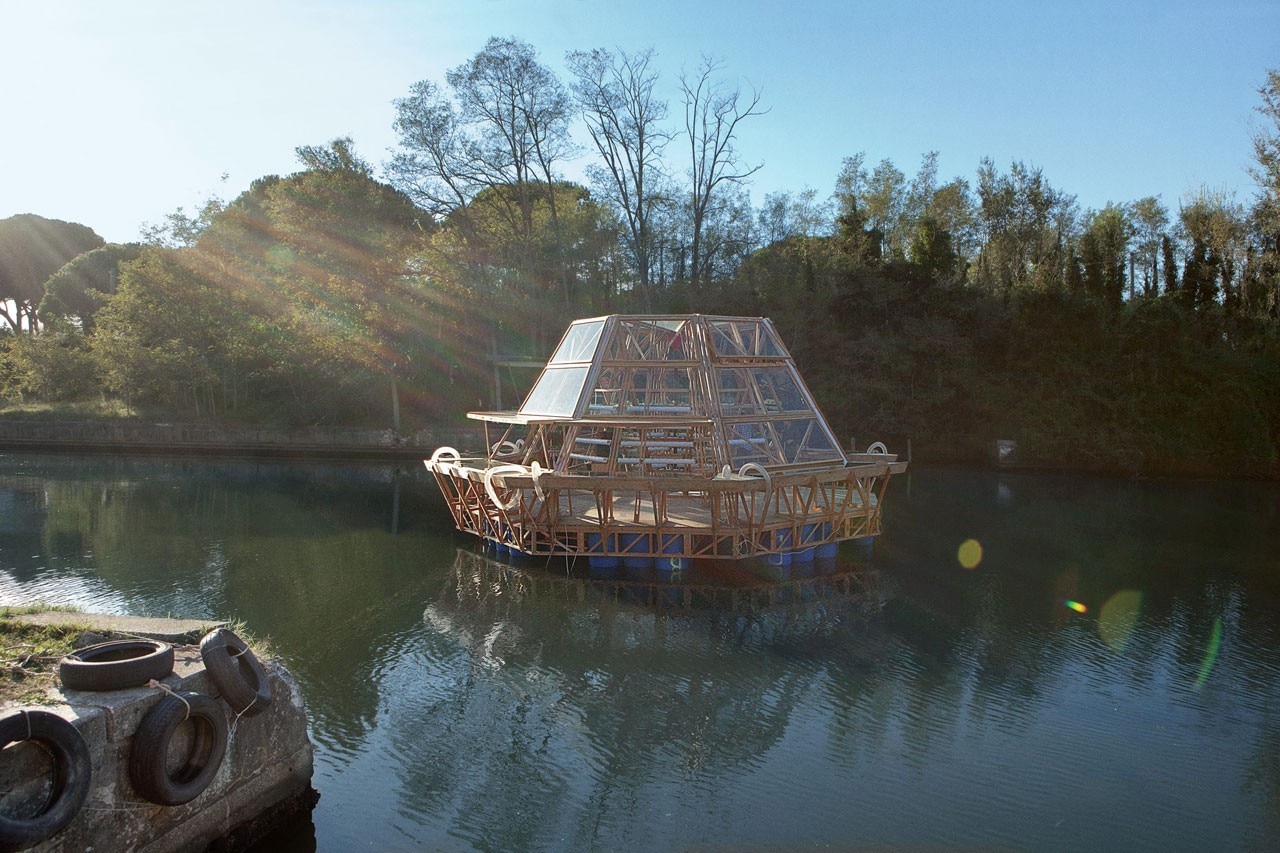
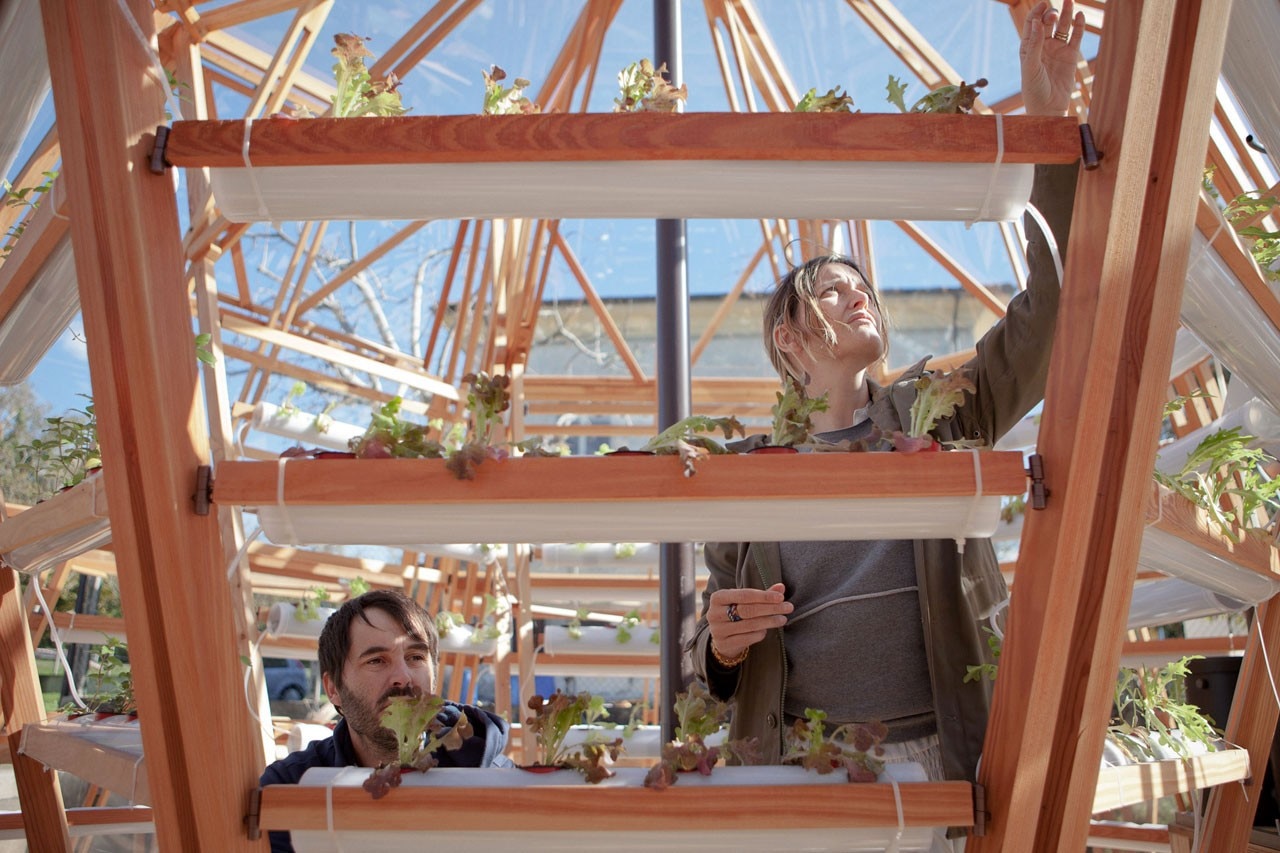
Fresh water is provided by 7 solar stills arranged along the perimeter, designed by the environmental scientist Paolo Franceschetti. They can produce up to 150 liters/day of clean fresh water from salt, brackish or polluted water. Solar distillation is a natural phenomenon: in the seas, the sun’s energy evaporates water, which then falls as rain water.
In Jellyfish Barge the solar desalination system replicates this phenomenon in small-scale, sucking moist air and forcing it to condense into drums in contact with the cold surface of the sea. The low energy required to power fans and pumps is provided by photovoltaic panels integrated in the structure.
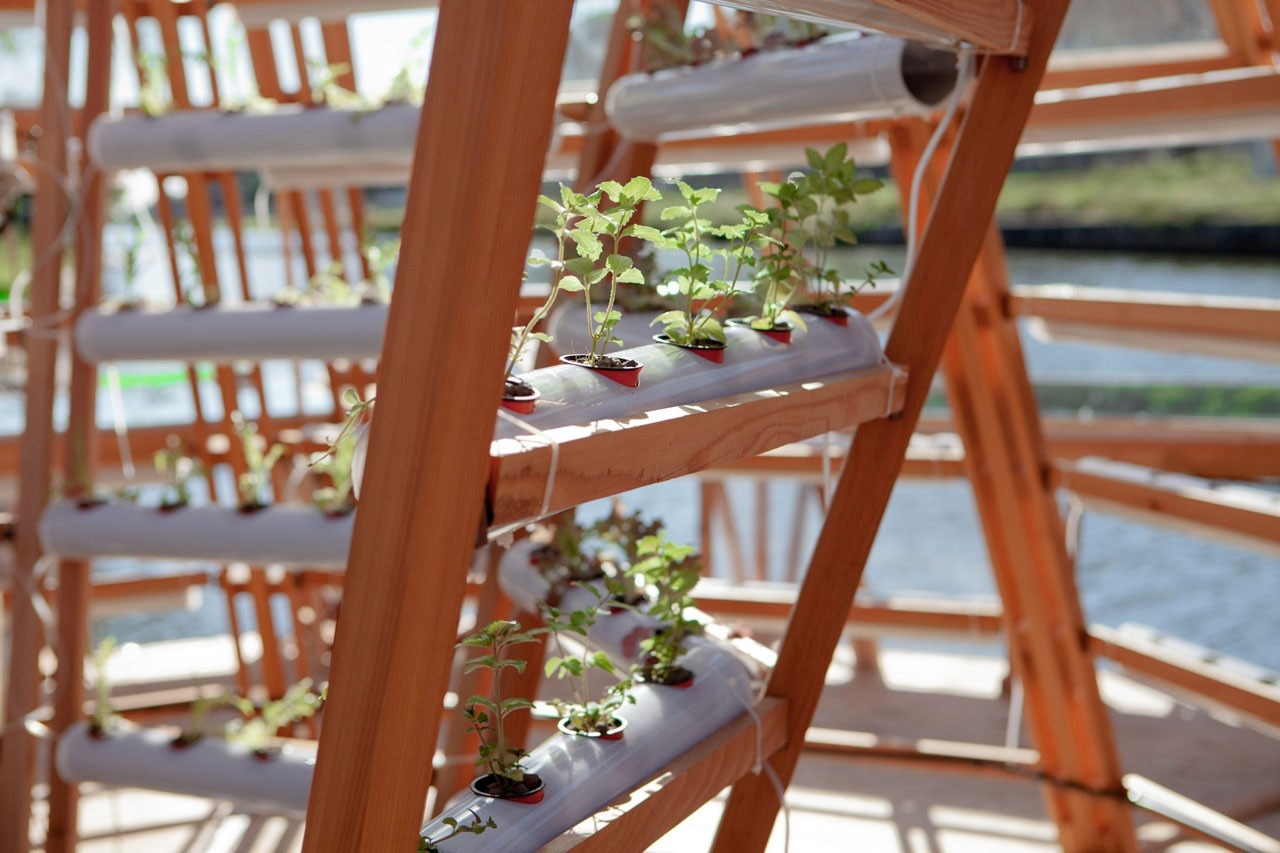
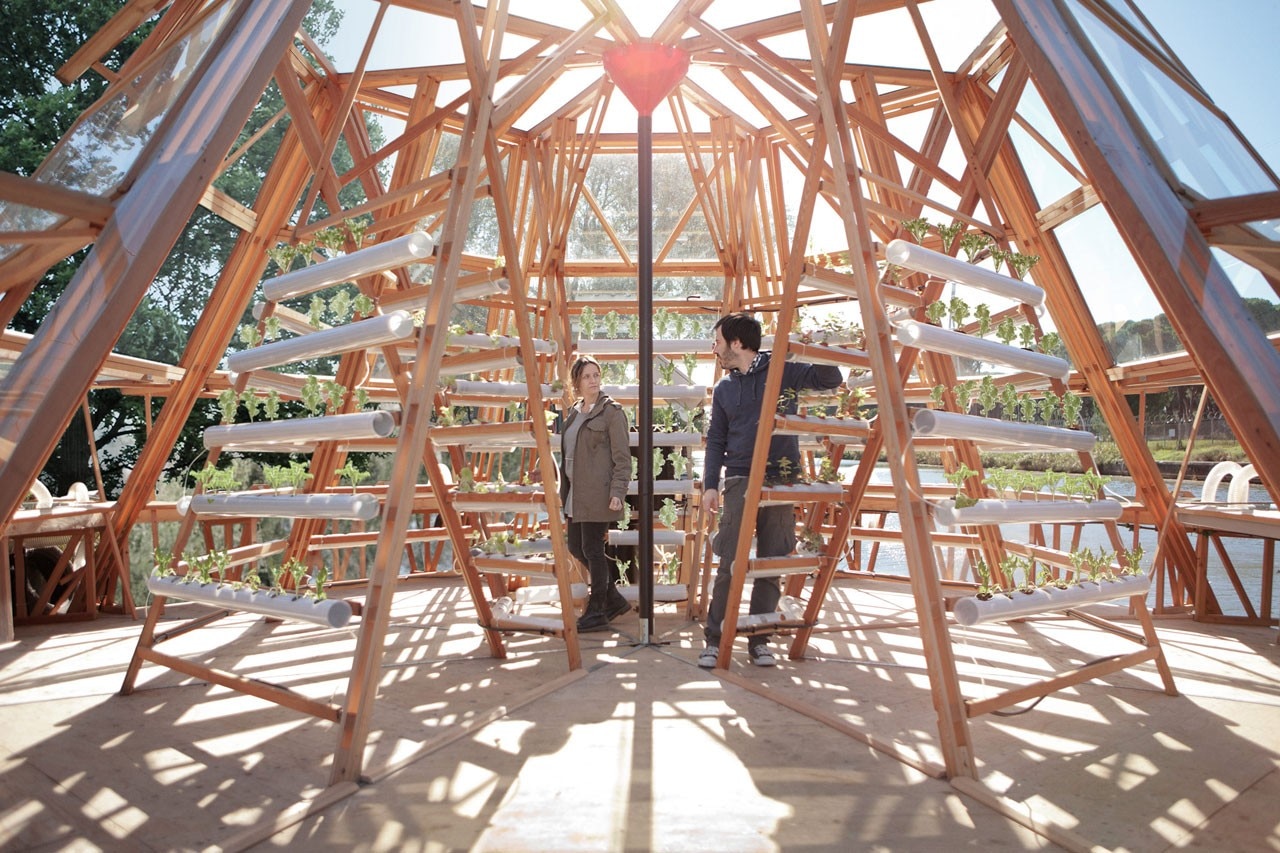
Jellyfish Barge is a project coordinated by professor Stefano Mancuso (University of Florence), director of the International Laboratory of Plant Neurobiology and projected by the architects Antonio Girardi and Cristiana Favretto, founders of Studiomobile.
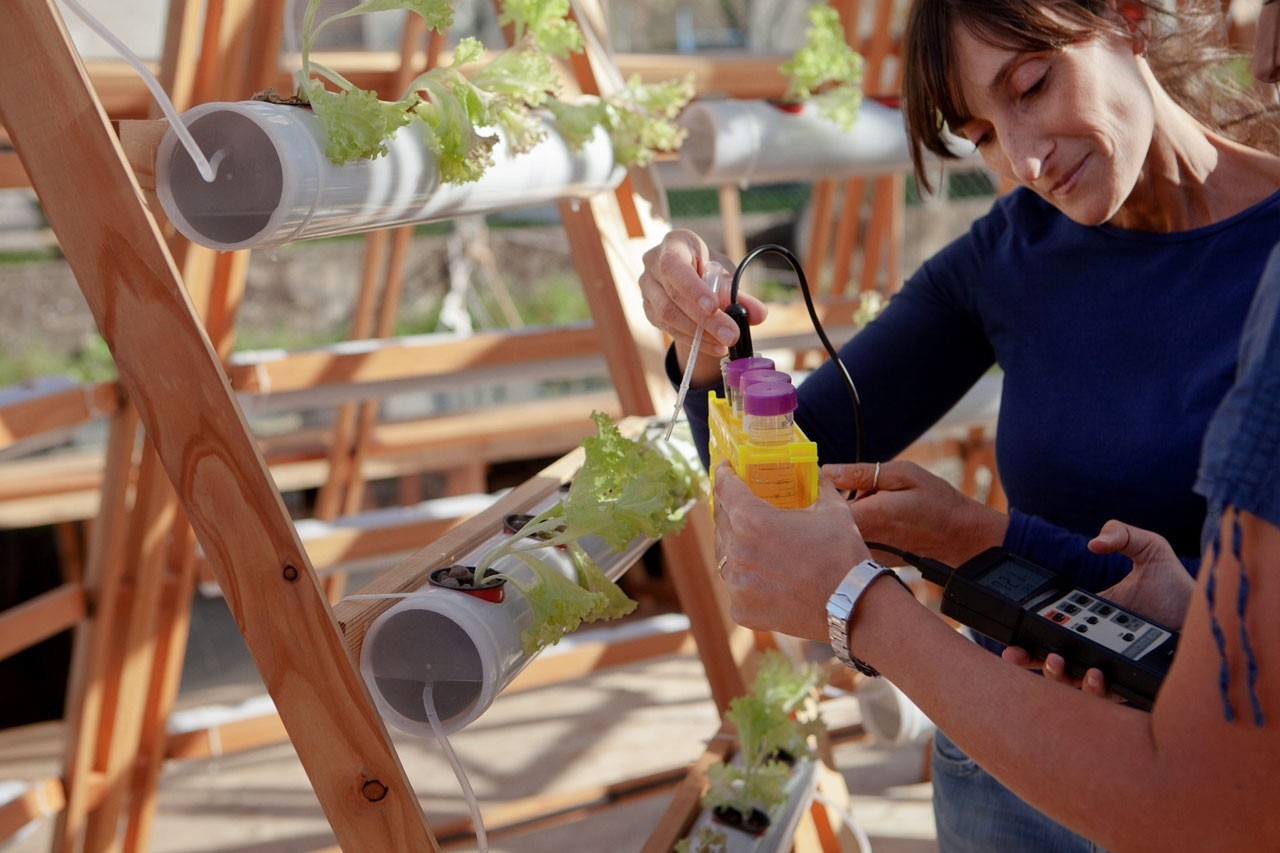
Jellyfish Barge
Design: Studiomobile
Coordinated by: Stefano Mancuso (director of the International Laboratory of Plant Neurobiology, University of Florence)
Jellyfish Barge is produced by Pnat, a spin-off of the University of Florence.


